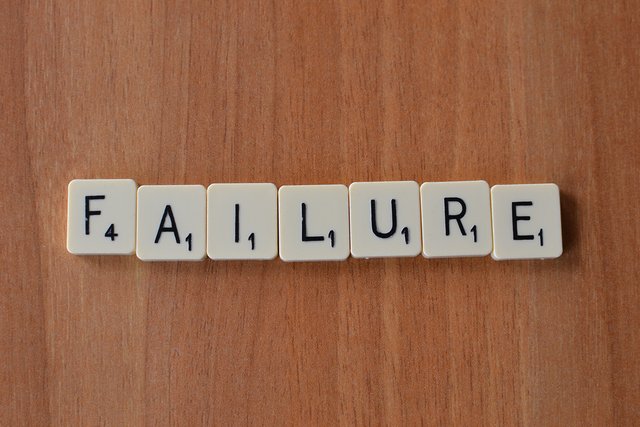Psychological Readiness & A Child's Future
I have done two posts thus far on a few the offline ways and online ways in which a parent or a teacher can use to prepare a child for the future. All these ways are good, but at times, a child's biggest problem is not the lack of knowledge or skill, but the level of psychological readiness a child possesses to face the future.
Psychological readiness can be referred to as the child's mindset and motivational readiness (Baimenova, Bekova & Saule, 2015).
Throughout my many years of teaching, I have found a few traits that certain students possess that sets them apart from those that are mediocre and those that are excellent. Here are some of these traits as well as ways in which a parent or teacher can take into consideration.

Never Giving Up
If I had a dollar for every time I hear my students claim that 'they don't know' or that 'they can't', I will be a millionaire by now. To be clear, I am fine if my students are not able or are not aware with a certain concept or task. The problem though, is that many of them would resort to giving up first before even attempting to complete it.
I believe that this is a very bad habit that has been nurtured by an exam oriented culture and a culture that fears failure. While it may be easy to blame the system and even the teacher, the thing is, the entire education system consists of far too many stakeholders and administrators that may not see the big picture.

While I can't go full anarchy and attempt to bring the system down, I think we all can do small things in our very own way to try to minimize the damage done to the children. An example is that whenever a student claims that he or she does not know something, I would always require them to end the sentence with a statement that they would try. So instead of just claiming to not know something, it will sound like this:
I find that ending with that added statement in the back has helped many children at least attempt a difficult task. After all, our minds are at times our biggest enemy and teaching the younger generation how to fight it is an essential skill which would lead to the psychological readiness of the child. Of course, what if they try but still fail?I don't know, I can't, but I will try.
Dealing With Failures
Failure is such an ugly word. Many people absolutely hate it and some schools view the students' failure as a capital offence. I once heard a teacher asking a student to get out of the school and stop bringing down the school's average results.My heart does break for the student who may not have the same opportunity as his peers. As such, I think it is important to teach a child how to deal with failure. First, observe how the child responds to failure. Is the child indifferent or did the child take failure really badly?

After that, guide the child towards the meaning of failure, I would call it a learning opportunity. That's because I would help the child understand how and why he or she failed. This is of course done by Socratic questioning techniques. The point is to get the child to piece together the gaps he/she is facing in learning.
The process to achieve this is difficult. We all gravitate towards pleasure and fun. As such, telling a child to face his or her failure and work hard may not be pleasant for the child. However, a child knowing the reason behind his/her failure will lead to the next step.
Goal Setting
It is rather vague and easy to tell the child to work hard, study hard and get a good job. Such a goal can be rather vague and it spans over the child's entire school life. A better way of teaching goal setting is by making it a frequent exercise. It could be a weekly or a monthly task where the child should sit down and talk about what the child hopes to achieve every month.

This monthly goal setting exercise can also consist of a future goal. For example, his or her dream job or future. The psychological readiness portion here stems from knowing what is installed in the future. The child can be given tools such as books and well, Google, to research a job or a course he/she hopes to study in the future.
Through their own research, it is possible for you to help guide them towards achieving it. As you guide the child, you are also preparing them mentally to face different challenges in the future.
Conclusion
We can never escape challenges and change. Challenges and change can be extremely daunting to not just to adults but children as well. I believe the earlier we start teaching them these aspects, the more prepared they are in the future.
I say this also based on my experience mentoring youths and children. Once you instill the traits mentioned above into their lives, you build that psychological readiness to face an uncertain future.
Reference
Baimenova, B., Bekova, Z., & Saule, Z. (2015). Psychological readiness of future educational psychologists for the work with children in the conditions of inclusive education. Procedia-Social and Behavioral Sciences, 205, 577-583.

Posted from my blog with SteemPress : http://alvinauh.vornix.blog/2018/07/09/psychological-readiness-a-childs-future/
If you would like to support the educational community by delegating to @steemiteducation, please click on any of the following links. This will ensure that more teachers are supported on a daily basis.
100SP 200SP 300SP 400SP 500SP 750SP 1000SP 2000SP 3000SP 4000SP 5000SP 10,000SP 25,000SP
This post has been curated by TeamMalaysia Community :-
To support the growth of TeamMalaysia Follow our upvotes by using steemauto.com and follow trail of @myach
Vote TeamMalaysia witness bitrocker2020 using this link vote for witness